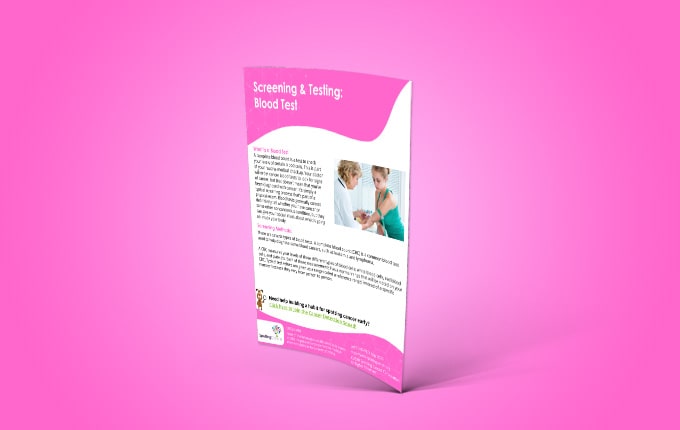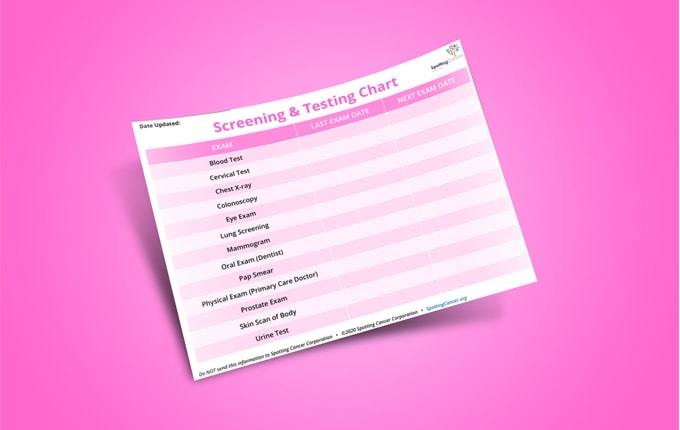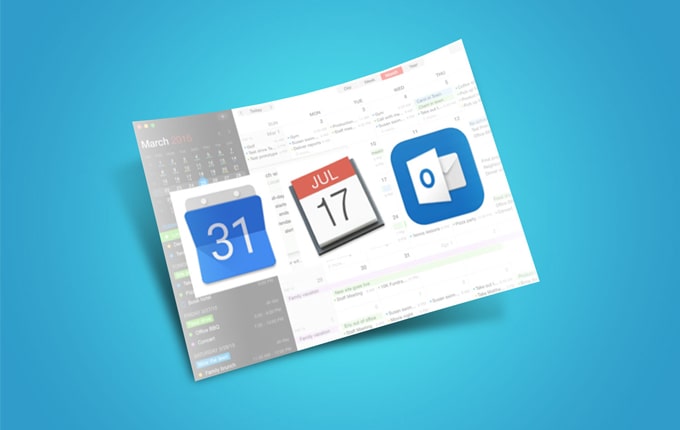Blood Test (96, 97)
Cancer screening & testing helps you #SpotandSurvive
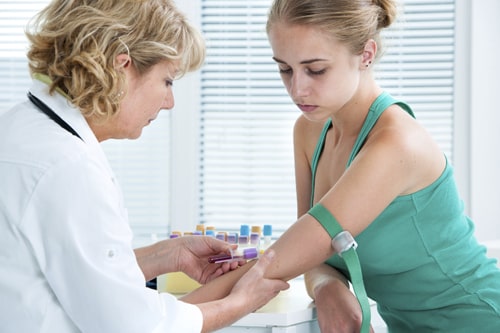
A complete blood count is a test to check your levels of certain blood cells. This is part of your routine medical checkup. Your doctor will order cancer blood tests to look for signs of cancer, but that doesn’t mean that you’ve been diagnosed with cancer; it’s simply a typical screening process that’s part of a physical exam. Blood tests generally cannot definitively tell whether you have cancer or some other noncancerous condition, but they can give your doctor clues about what is going on inside your body.
Download Our Spot and Survive Guides Free Now!
Learn the signs to potentially save yours and your family’s life.
Screening Methods:
There are several types of blood tests. A complete blood count (CBC) is a common blood test used to help diagnose some blood cancers, such as leukemia and lymphoma.
A CBC measures your levels of three different types of blood cells: white blood cells, red blood cells, and platelets. Each of these measurements has a normal range that will be noted on your CBC. Typical test values are given as a range (called a reference range) instead of a specific number because they vary from person to person.
Other types of blood tests:
- Blood protein testing: A test to examine various proteins in your blood. It can aid in detecting certain abnormal immune system proteins, which are sometimes elevated in people with multiple myeloma.
- Tumor marker tests: Tumor markers are chemicals made by tumor cells that can be detected in your blood. The best way to use tumor markers in diagnosing cancer hasn’t yet been determined.
- Circulating tumor cell tests: Experimental blood tests are being developed to find cells that have broken away from an original cancer site and are floating in the bloodstream. More research is needed to understand how these tests can help doctors diagnose advanced cancers.
Though blood tests can give your doctor clues, other tests are usually necessary to make the diagnosis. For most forms of cancer, a biopsy is usually necessary to make a definitive diagnosis.
Preparation:
Follow your doctors’ directions. Sometimes they will have you fast before your blood test. Check with your doctor to see if it is alright to drink water to stay hydrated.
Watch this video to see what happens during a blood test.
When:
As part of a routine medical exam or when symptoms are brought to the doctor’s attention.
Spot Cancer
Get reminder emails, tips, and resources to develop your spotting cancer habit when you join the Cancer Detection Squad

Take Action
Regular screening & testing is necessary to to spot cancer before it’s too late. Talk to your doctor or medical provider today to learn what cancer screening & testing is right for you.
you can
when you download and use our guides
Get the Screening & Testing Blood Test
Download the guide to help you understand how a Blood Test works and to learn the best time to schedule a screening. Share with your friends and family to help raise awareness on the importance of early cancer detection.
Get the Screening & Testing Scheduling chart
Download the interactive Screening & Testing Scheduling chart to help you keep track of important screening and testing schedules. Download today!
Save a Body Monitoring and Screening & Testing schedule
Regular monitoring and testing is a life-saving habit. Save a Body Monitoring and Screening & Testing schedule to your Google Calendar or iCalendar to stay on track!
You're on Step 5

Step 1:
Signs & Symptoms
To monitor yourself for early cancer detection, you must know the cancer signs and symptoms. A listing of the various signs and symptoms are just a click away.

Step 2:
Body Monitoring
Cancer grows 24/7. Therefore, you must monitor your body to detect any abnormality between regular doctor visits or screenings. The tools and methods are described in this section.

Step 3:
Family History
Knowing and charting your family medical history will help your medical team as they develop a long-term wellness program suited to your unique needs.

Step 4:
Medical Team
Cancer is not self-healing. Therefore, when spotting a cancer sign or symptom, consider it a red flag that should cause you to consult your medical team immediately to determine if it is cancer or another illness.
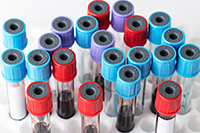
Step 5:
Screening & Testing
Not all cancer signs and symptoms are visible. You should establish specific times for the various cancer screening and tests with your medical team.

